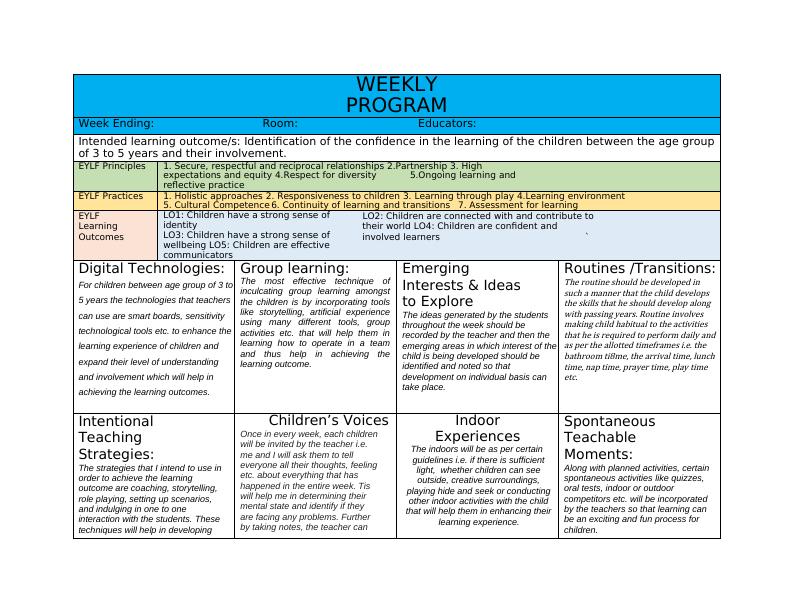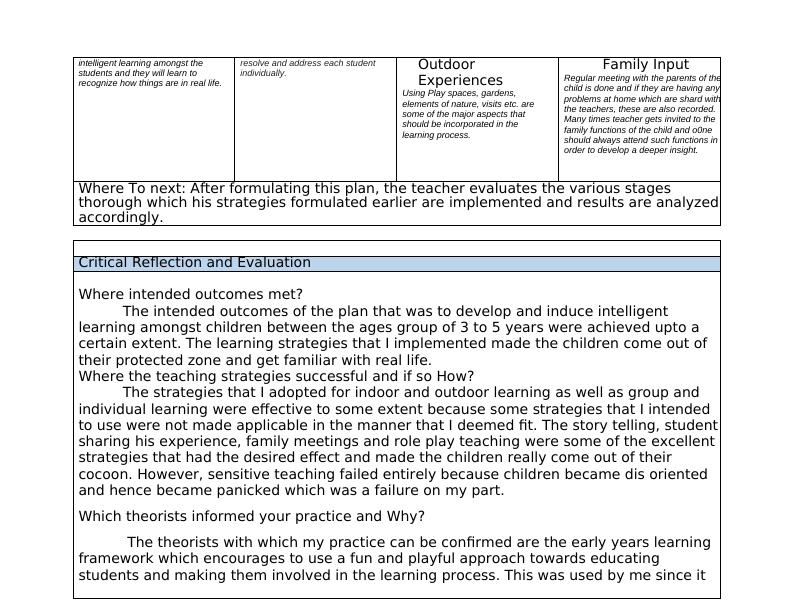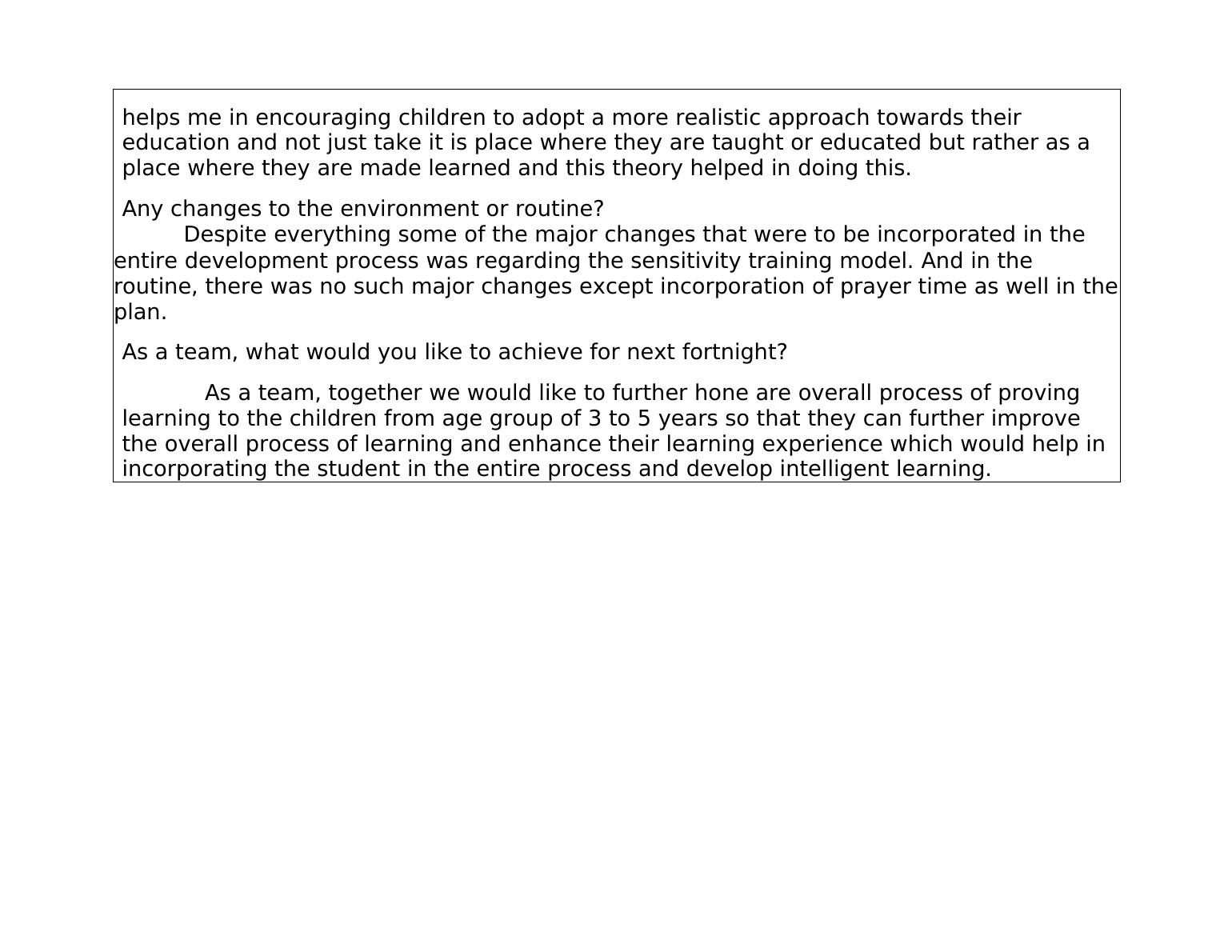Weekly Program for Children Age 3-5
7 Pages2333 Words48 Views
Added on 2023-01-19
About This Document
This document provides a weekly program for children between the age group of 3 to 5 years. It focuses on enhancing their learning experience through various activities and strategies. The program includes routines, group activities, indoor and outdoor experiences, and family input. The document also discusses the use of digital technologies and intentional teaching strategies. The program aims to achieve the learning outcomes of developing strong identity, connection with the world, and confident and involved learners. The document provides insights into the teaching strategies used, changes to the environment and routine, and critical reflection on the outcomes.
Weekly Program for Children Age 3-5
Added on 2023-01-19
ShareRelated Documents
End of preview
Want to access all the pages? Upload your documents or become a member.
Assessment Process for Educational Services as per NQS
|8
|2010
|234
Storytelling Teaching Resources
|4
|918
|53
ESM780 Curriculum Pedagogy and Assessment 2022
|11
|2389
|22
Cognitive Development of Infants and Young Children
|12
|3238
|193
Report on Mathematics Learning Plan
|6
|1314
|155
Language and Literacy Learning Assignment PDF
|6
|1941
|112



